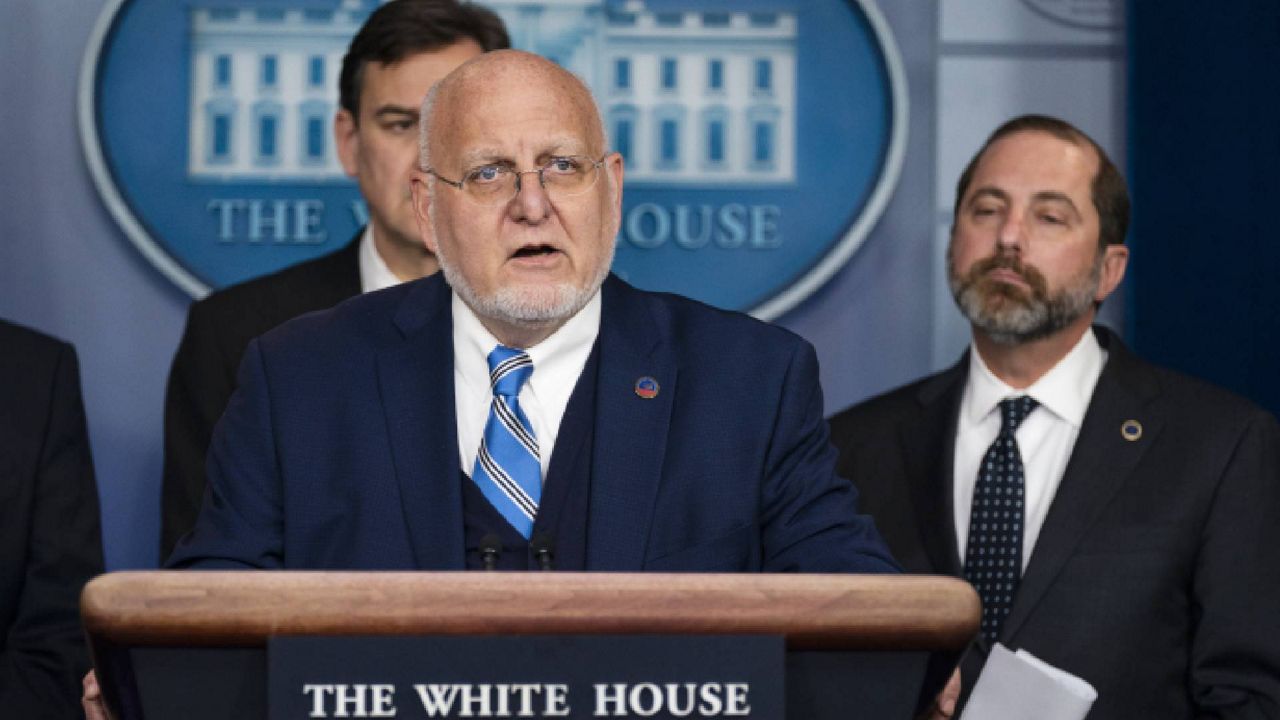A House panel investigating political interference at the Centers for Disease Control and Prevention subpoenaed two of the nation’s top health officials Monday, according to a letter sent by panel chair Majority Whip Rep. James Clyburn (D-SC).
The subpoena orders CDC Director Robert Redfield Health and Human Services Secretary Alex Azar to turn over documents related to “efforts by political appointees” to interfere with “scientific work conducted by career officials” at the CDC.
The letter also includes new details about the ways HHS officials tried to interfere with the CDC’s weekly reports on morbidity and mortality, which are normally drafted and reviewed only by agency officials. The new developments were revealed as part of the Select Subcommittee on the Coronavirus Crisis’ ongoing investigation into political interference, which started in September.
According to Rep. Clyburn’s letter, documents obtained by the committee show that HHS Assistant Secretary for Public Affairs Michael Caputo and his senior adviser, Dr. Paul Alexander, tried to influence multiple Morbidity and Mortality Weekly Reports (MMWRs) over the course of May through September.
The reports include one on the early spread of COVID-19 in the U.S. in January and February, a July report on wearing masks and a report on hydroxychloroquine, the unproven drug that President Trump touted as a treatment for COVID-19.
The official who oversees the reports, Editor-in-Chief Charlotte Kent, told lawmakers that Dr. Alexander and others pressured her to make changes, which she said was “not typical.” Kent said she chose not to cooperate to prevent the “perception that that was influencing the scientific integrity of MMWR.”
Monday’s subpoenas direct HHS Secretary Azar and Director Redfield to turn over a full, unredacted set of related documents by Dec. 30, which include documents from Sec. Azar, Director Redfield, Dr. Alexander and two other HHS officials. So far, the agencies have only submitted a portion of documents related to Dr. Alexander.
Last week, those documents included emails showing that Dr. Alexander also pushed a controversial policy of herd immunity, which would encourage infections in less-vulnerable populations and likely result in many more deaths. That strategy did not become part of HHS policy at any time, according to a department spokesperson.
In another case detailed in the committee’s letter, HHS officials pushed for changes to an report that detailed the rapid spread of COVID-19 among children at Georgia summer camp. The MMWR detailed high rates of asymptomatic transmission and confirmed that “children of all ages are susceptible” to the virus.
Dr. Alexander and other officials sought to block the report as written, saying it would undermine the CDC’s push to reopen schools.
“I find it incredible this piece would be put out the way it is written at a time when CDC and its leader Dr. Redfield is trying to showcase the school re-open guidance,” Dr. Alexander wrote. “It just sends the wrong message.”
The report was eventually published and not significantly altered, though it was delayed.
As it investigates attempts to influence the CDC’s work, the House panel on the coronavirus is also seeking interviews with senior CDC officials, including CDC Director Redfield. Earlier this month, the agency canceled previously-scheduled interviews.



